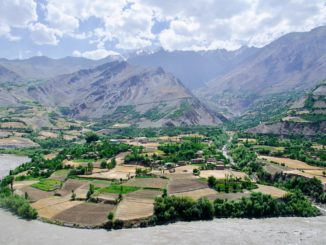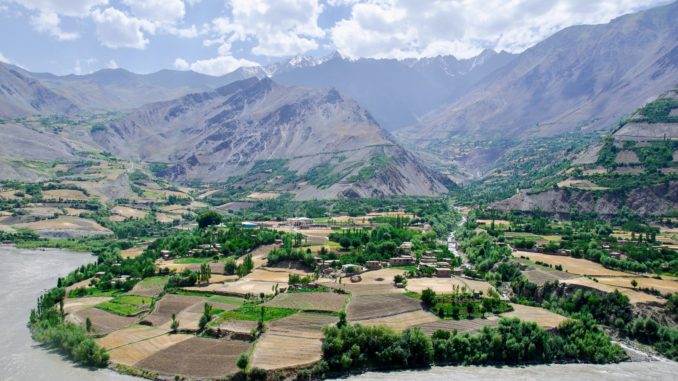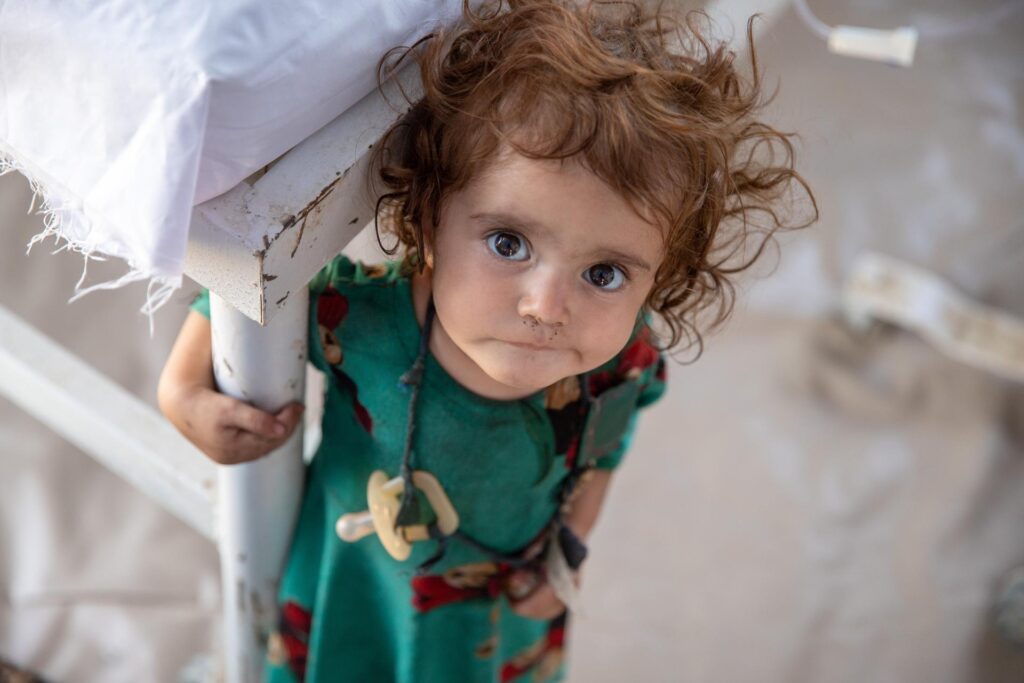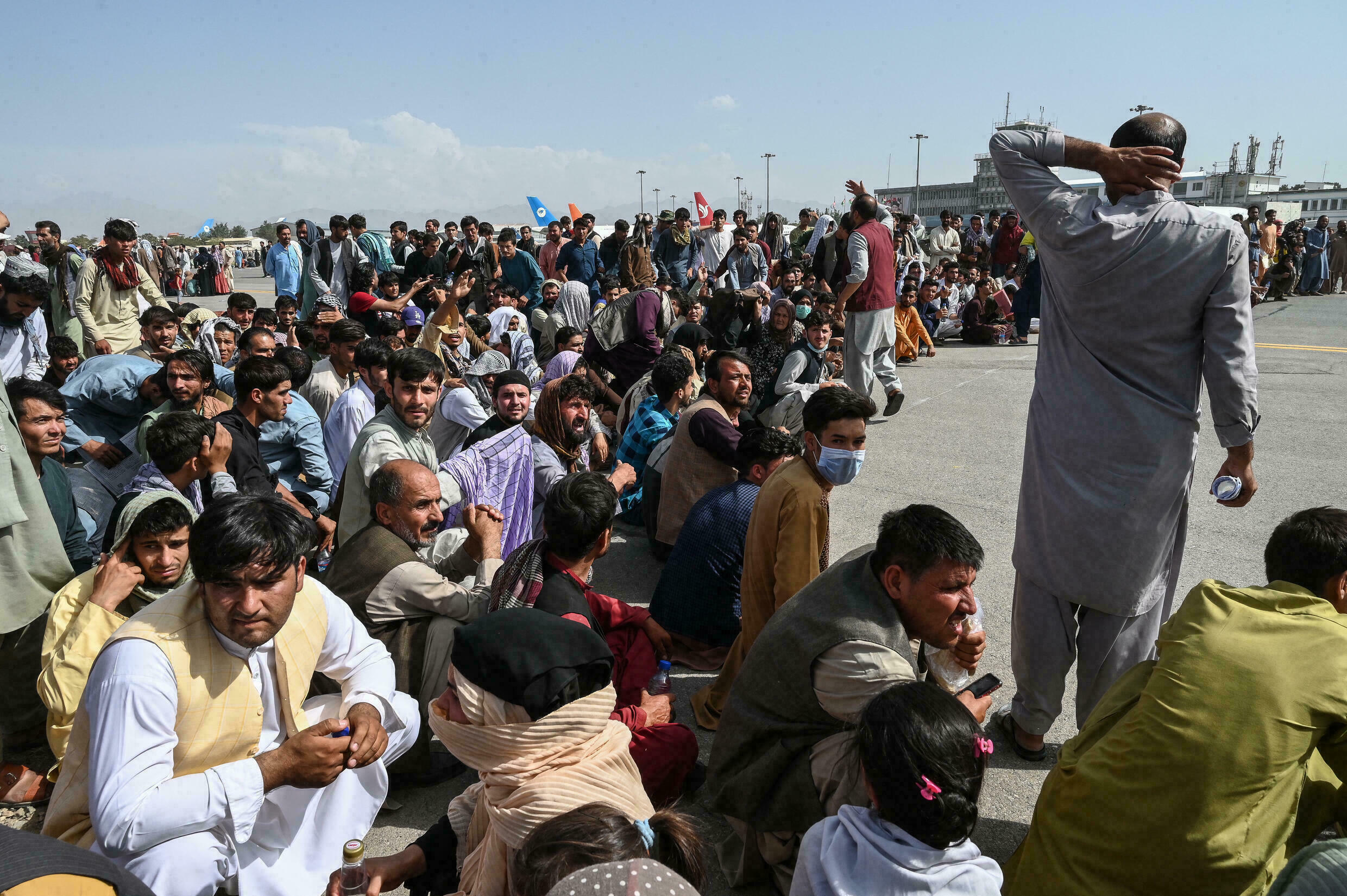
Editor’s Note: The following is the writer’s opinion.
Ugandan President Yoweri Museveni will provide room and board to about 2,000 Afghan refugees, at the request of the United States, until they can be transferred to Western countries in months or years to come. Airplanes carrying Afghan evacuees have already landed in Uganda.
This is a diplomatic triumph for a “useful” tyrant, who has repeatedly acted as a CIA enforcer in the sensitive regions of Central Africa and the Horn of Africa.
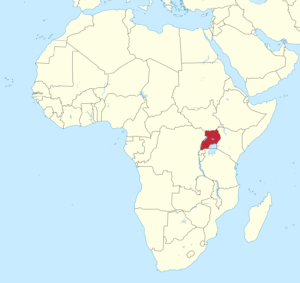
First, the open arms of the people of Uganda must be praised, especially now at a time of global racist pushback against asylum seekers and refugees. Uganda, a country with just $827 per capita income, is home to 2.2 million refugees fleeing grisly violence in Congo, Somalia and the rest of the African continent.
How ever generous, the good hearts of Uganda’s people have been used by Museveni as a bargaining chip to curry favor with the United States and thus solidify his calamitous rule.
Museveni has governed Uganda for 35 years. In the process, he has whipped skulls of challengers, forcibly pulled dissidents from airplane seats, and won a bloody election in January in circumstances that can be described as a stain on democracy.
Despite Museveni’s track record, the CIA counts him as a crucial bulwark against the radical Islamist menace in the Horn of Africa and East Africa region. The so-called “War on Terror” keeps Uganda wealthy with U.S. cash and makes Museveni so untouchable that his soldiers serving in Somalia drive around in bomb-resistant vehicles that once couriered U.S. troops around Afghanistan. Museveni is the United States’ dependable ally in East Africa, not thinking twice before he deploys Ugandan troops on behalf of U.S. operations to control the outcomes of regional wars in Somalia, Burundi or Congo.
As Yasin Kakande, fierce Museveni critic and author of Why We Are Coming, tells me: “Museveni plays a role akin to the head of a brokerage firm for rebels, rebellions and peace missions on behalf of America.”
The Afghan refugee emergency saw a bungling Biden scrambling for venues to temporarily place evacuated refugees ahead of a so-called “red-line ultimatum” given by an increasingly confident Taliban regime in Kabul. Qatar, a transit country, says it is now saturated with refugees and can take no more. Iran and Turkey were reportedly restricting the entry of Afghan refugees into their territory. However, Museveni has spotted a gap to play a benevolent friend to a desperate United States.
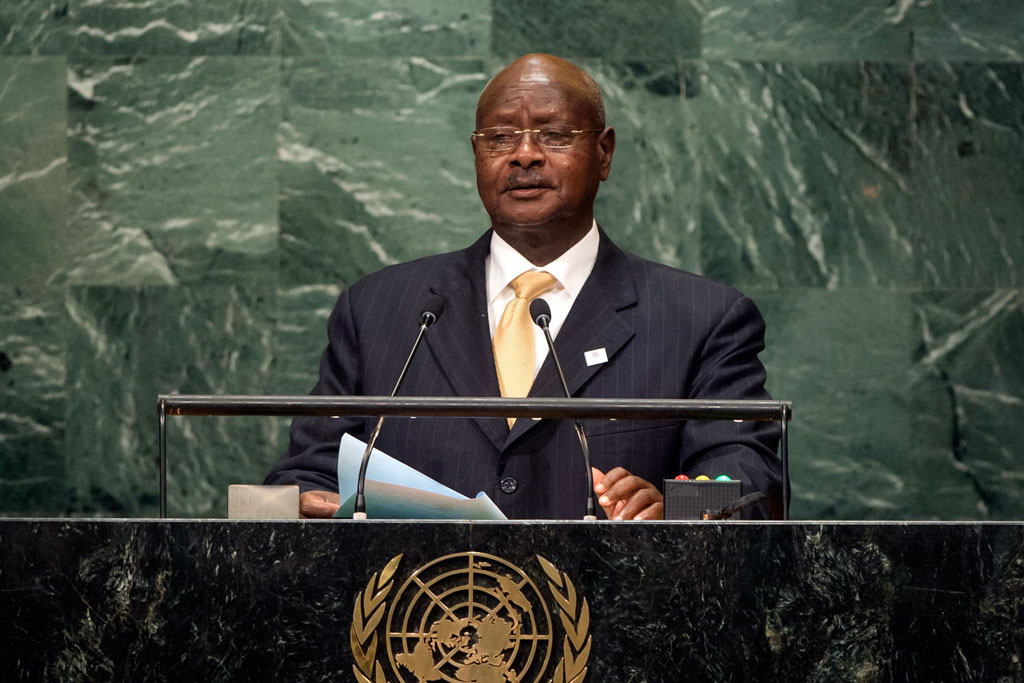
Museveni is clever. He knows after an election victory marred by widespread killings and torture of opponents, the United States was taking a hard line, imposing visa sanctions on Uganda government officials accused of undermining democracy in the East African nation. Civil society and global human-rights partners were calling on the United States to slap Museveni’s regime harder.
Running low on options, he had to wiggle his way out. A chance presented itself in Afghanistan and Museveni jumped to aid Biden in Afghanistan. By pretending to be generous to the Biden administration, Museveni is maneuvering back into the favor of Washington. Uganda government trolls are already having a field day, making sexist remarks about Afghan female refugees.
“President Museveni has opened borders to Afghan refugees,” charges outspoken Ugandan journalist Yasin Kakande, who has not lived in his homeland for years. “The CIA claps hands and tells Washington that Museveni is a model dictator who fights America’s failed wars. The same story like in Somalia.”
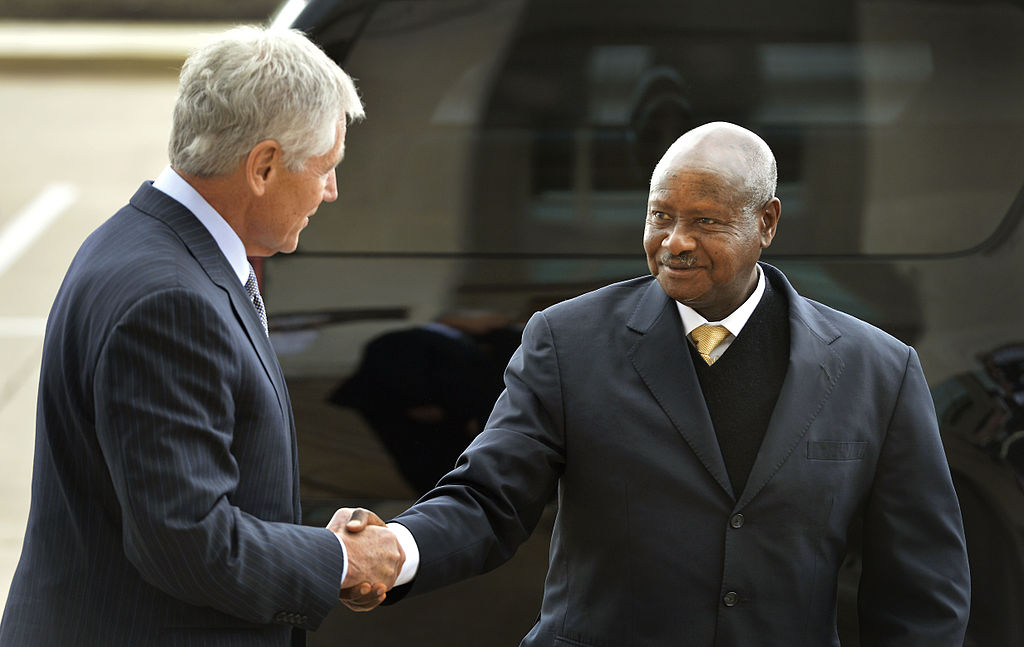
The nature of global politics has evolved significantly in the 21st century. The United States is no longer the uncontested world power, able to dominate every domain in every region of the world. Cooperation with dictatorial governments like Museveni’s in Uganda that do not hesitate to sign off on deals without consulting with their citizens is the sweetest dream of the contesting powers of the world. The United States is threatened by the closing gap between herself and her immediate competitor, China. The rivalry between the two is working to the advantage of power-hungry oligarchs in far-off places like Uganda, who survive by serving the interests of these powerful nations. The desperation of Afghan refugees is bringing the murderous political elites of Uganda and the U.S. government closer to deals. For Museveni, leveraging his legitimacy on cooperating with the United States significantly works to his political advantage, while the self-serving convenience of turning a brutal government into a useful ally is, to the United States, high priority. Access to loans from international funders, as well as to donor funds and ammunition, all work to build an elitist political empire that thrives by riding roughshod over the stricken of the region and Uganda whilst handsomely serving U.S. imperial goals.
The geopolitical relevance of autocratic strongmen in the African Great Lakes region puts the likes of Museveni in Uganda in a special class of despots the U.S. government cannot afford to stop working with. After the massive but disorganized and humiliating withdrawal from Afghanistan, the U.S. government seems not to care much about who it wines and dines with as long as it puts a cover on the negative implications of its rushed Afghan pullout.
There is nothing wrong with Ugandan people’s remarkable generosity in hosting batches of Afghan refugees. But Museveni opportunistically casting himself as a global refugee-rights icon must not cloud the United States’ duty to call out his repressive rule in Uganda.
The United States seemingly has two choices: Alienate an autocrat like Museveni by rebuking him or overlook his undemocratic excesses and retain Museveni’s help in the so-called “War on Terror.”
The United States has chosen the latter.
Ray Mwareya won the 2016 UN Correspondents Association Media Prize. His work appears in Newsweek, The Guardian and Reuters. He can be followed on Twitter at @rmwareya.

